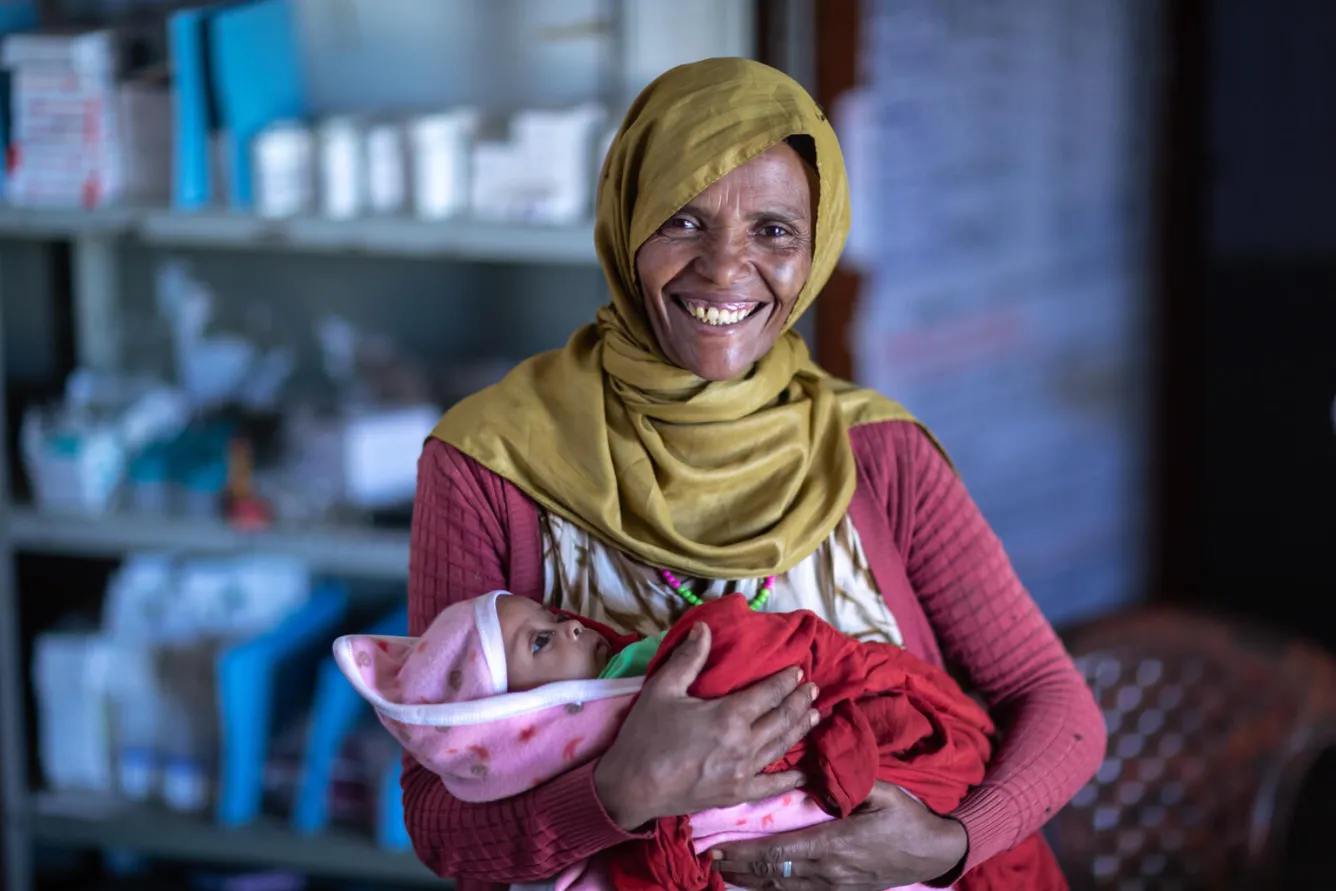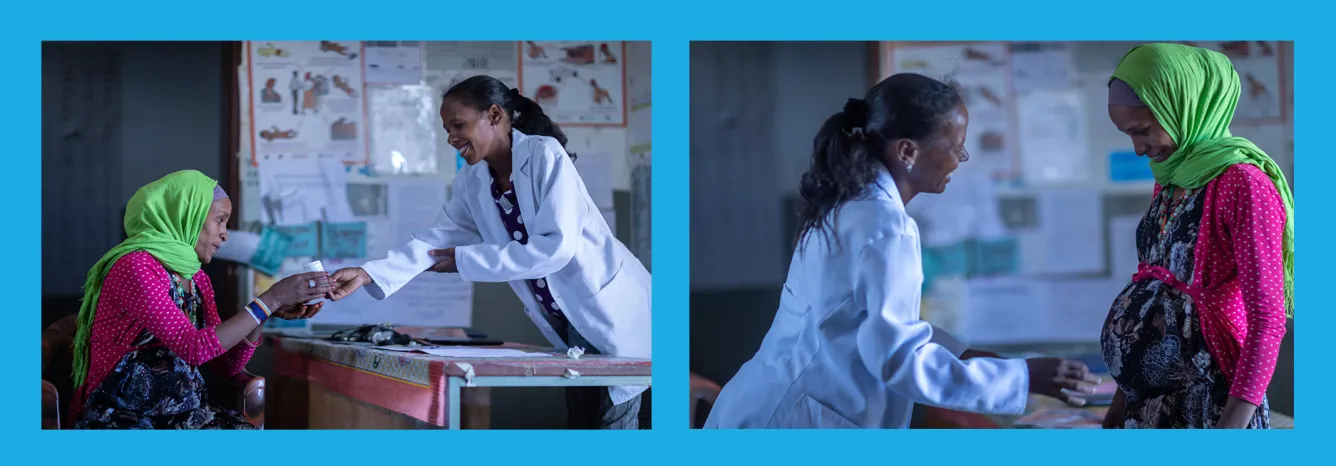Maternal health in focus in Ethiopia
By Samuel Waterton, Digital Communications Specialist, UNICEF
Rehima was in a dark place.
Heavily pregnant, she was struggling with extreme fatigue, blurry vision, and dizziness. One day while cooking she fainted, breaking her fall on a pan. She could no longer stand-up and was so weak and in so much pain, she felt she couldn’t go on.
Her friends and family decided that Rehima should urgently travel to the nearest health post, a three-hour motorbike ride along rough roads in rural Oromia, Ethiopia.
She didn’t know it yet, but a simple pill would help transform her life.
Multiple Micronutrient Supplements (MMS) supplied by UNICEF and the Federal Ministry of Health contain 15 vitamins and minerals clinically proven to help boost the health of pregnant woman, breastfeeding mothers, and their babies.
Rehima was met at Kolabe Bale health post by Workitu Abera, a health extension worker who prickles with positive energy as she bustles back and forth attending to her patients in various stages of pregnancy with nutritional screening, vaccines, and ante-natal check-ups.
Micronutrients for mother and baby

Workitu prescribed Rehima with MSS and advised her to take a pill daily with food and water. Bedridden for months, Rehima’s strength started to return.
“After 10 days, I was able to stand up on my feet, to fetch water and to collect firewood,” says Rehima. “I was able to chop firewood and cook on our doorstep. My kids were happy with my improvement. They were saying ‘Our mother can stand now.’ I got my peace of mind back and my husband’s face became brighter.”
News of the supplement travelled fast and now most of the pregnant women in the area take it. They know it’s good for both them and their baby.
“Before taking MMS, I was extremely tired, dizzy and weak,” says Kokobe Ashebir as her two-month-old baby sleeps soundly in her arms. “After about a week of taking MMS, everything stopped. I love it. It was good for my baby’s growth, weight and I gave birth within the expected time.”

Leading the way for better maternal nutrition
Workitu lives locally and provides health services for over 700 households, so is well acquainted with the nutritional issues faced by women in the area.
“There’s a saying here that women eat their aprons. It means that her need to eat isn’t even a consideration,” she says. “Women would make food, feed the men, and then finally eat afterwards. There may or may not be enough of the food she prepared for lunch for her to eat.”
The area in Sire, Oromia is rural and facing a particularly dry spell, which makes some foods hard to find or expensive. “I would love to eat more eggs, meat and milk, and I know it’s good for my baby, but I just can’t afford it,” says Mekiye Turi, who is five months pregnant and a patient at Kobe Bale Health Centre. In the absence of a diverse diet, supplements are helping build nutritional reserves for both herself and her growing baby. “Before taking MMS my vision was blurred and I had vertigo. After I started MMS, I’ve had no further complaints.”
Workitu is championing the need to better look after women’s nutrition through her consultations and active participation in community meetings. She’s even started a community garden in the grounds of her clinic to demonstrate ways to grow fresh vegetables locally. For her, the solution is simple; “If a woman eats nutritious food and gets prenatal care when she is pregnant, she will have a healthy child.”
Rehima knows this first-hand as she cradles Shurki, her two-month-old baby. “Workitu treated me, gave me pills and helped heal me. These pills should be available for mothers everywhere.”
